![]() Want to learn more about disability history? The Disability History Association Podcast features students, researchers, teachers, curators, elders, and activists who have disability history stories to share. Episodes can be streamed below, or you can download an mp3 or a pdf transcript.
Want to learn more about disability history? The Disability History Association Podcast features students, researchers, teachers, curators, elders, and activists who have disability history stories to share. Episodes can be streamed below, or you can download an mp3 or a pdf transcript.
If you have any questions or comments about the podcast, please email us at contact.dhapodcast@gmail.com.
Episode 44 (March 2024): The Project on Women and Disability (PWD) and Women’s Health Activism in the Late Twentieth Century
Nora O’Neill, an MD/PhD student at Yale University, discusses her research on feminist disability activism in 1980s/1990s Boston.

About Our Guest
Nora O’Neill is an MD/PhD student at Yale University in the History of Science and Medicine Program. Prior to Yale she received her undergraduate degree in the History of Science at Harvard and completed an honors thesis on activism by women with disabilities in 1980s Boston, the project she discusses in this episode. Nora’s current research blends historical and sociological methods and explores the impact of patient activism on medical education in the twentieth and twenty-first centuries. She hopes to combine clinical care with teaching and research in the history of medicine in her future career as a physician-historian.
Episode 43 (January 2024): Disability Rights and the Fight to End Subminimum Wages
Doug Crandell discusses his latest book, Twenty-Two Cents an Hour: Disability Rights and the Fight to End Subminimum Wages.
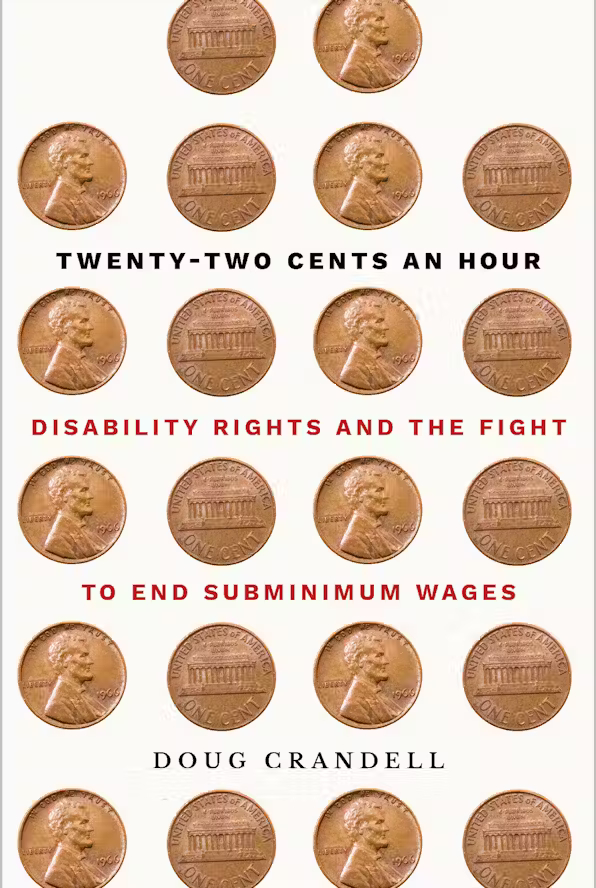
Download mp3 file here.
Download pdf transcript here.
About our Guest
Doug has worked for decades in employment and disability supports. He’s an advocate for a sibling with disabilities. In Twenty-Two Cents an Hour, he focuses on how the Disability Industrial Complex is often impenetrable, mired in deficit-thinking, and controlled by the lobbying of trade groups that do little for people with disabilities. Doug has published eight books with publishers including Penguin-Random House, Chicago Review Press, Virgin Books, and Cornell University Press. His essays on labor, mental health, and disability appear regularly in the SUN magazine. He directs the training and technical assistance center known as www.advancingemployment.com. Additional information is available at: www.dougcrandell.com and www.abolish14c.com.
Episode 42 (October 2023): Allyship, Parent Activism, and Disability Rights
Allison C. Carey, Pamela Block, and Richard K. Scotch discuss their co-authored book, Allies and Obstacles: Disability Activism and Parents of Children with Disabilities.
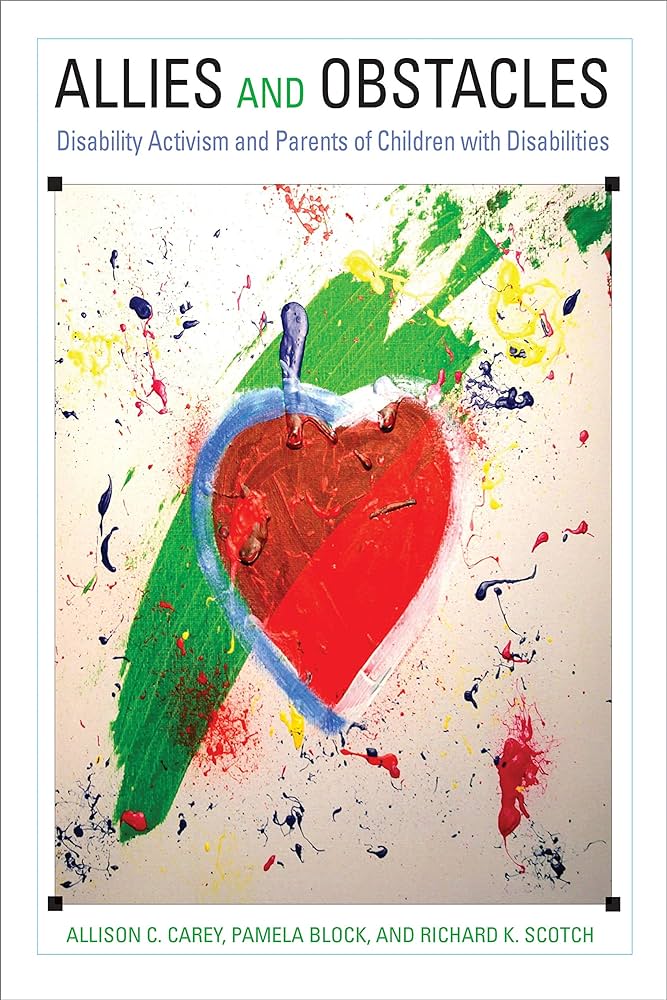
Download mp3 file here.
Download pdf transcript here.
About our Guests
Allison C. Carey is a Professor of Sociology, Chair of the Department of Sociology & Anthropology, and director of the MS in Organizational Development and Leadership at Shippensburg University in Pennsylvania. She is author of a textbook on the Sociology of Disability, Disability and the Sociological Imagination (2022, Sage), as well as On the Margins of Citizenship: Intellectual Disability and Civil Rights in Twentieth Century America (2009, Temple University Press), and co-author of Allies and Obstacles: Disability Activism and Parents of Children with Disabilities (2020). She has co-edited several volumes, including two with the book series Research in Social Science and Disability with Emerald Press and now serves as its series co-editor. Allies and Obstacles was awarded the 2022 Outstanding Publication Award from the Disability and Society section of the American Sociological Association (ASA) and the 2021 Scholarly Achievement Award from the North Central Sociological Association. In 2021 she was awarded the Outstanding Career in the Sociology of Disability by the Disability and Society section of ASA.
Pamela Block is a Professor of Anthropology at Western University. Her research interests include disability culture, cultural perceptions of disability, and the intersections of disability, sexuality, gender, race, ethnicity, and social status. She studies disability experience on individual, organizational and community levels, with past funded research involving socio-environmental barriers, empowerment/capacity-building, and health promotion. Her qualitative research methodologies combine historical and discourse analyses with community-based ethnographic, autoethnographic, and participatory approaches. She is particularly interested in movements for disability liberation (justice and rights) and disability oppression (eugenics, sterilization, mass-incarceration and killing) in Brazil, the United States and Canada
Richard K. Scotch is Professor of Sociology and Public Policy & Political Economy at the University of Texas at Dallas. His teaching includes courses on medical sociology, public health, social stratification, and social and health policy, while his research focuses on a variety of social policy topics related to disability, health, and education.
Dr. Scotch received his B.A. with honors from the University of Chicago in 1973 and his M.A. and Ph.D. degrees in sociology from Harvard University in 1975 and 1982 respectively. Prior to joining the UTD faculty in 1983, Dr. Scotch worked on the evaluation staff of the Virginia Division for Children and as an analyst with the U.S. Department of Health, Education and Welfare. In 1982-1983, Dr. Scotch served as a Congressional Science Fellow in the office of U.S. Representative Paul Simon (D-Ill).
Dr. Scotch is the author of several books and numerous articles and monographs on social policy reform and social movements in disability, health care, education, and human services including. From Good Will to Civil Rights, Disability and Community, Disability Protests: Contentious Politics 1970-1999. His 2020 book, coauthored with Pam Block and Allison Carey, is Allies and Obstacles: Disability Activism and Parents of Children with Disabilities; the book received “best book” awards from the North Central Sociological Association and the Section on Disability in Society of the American Sociological Association. His current research projects include a follow-up edited volume of narratives by activist parents of children with disabilities, interviews with political candidates with disabilities, and a five-year study with Dohyeong Kim that examines social and community barriers experienced by burn injury survivors.
Dr. Scotch serves as a reviewer for numerous professional journals, university presses, private foundations, and government agencies. He has been active in the local health and human service community in North Texas for four decades, working with agencies that include the North Texas Behavioral Health Authority, Collin County, Dallas County, the Dallas Healthy Start Initiative, the United Way of Metropolitan Dallas, Educational First Steps, the Texas Pride Impact Funds, and Parkland Health and Hospital System.
**If you would like to purchase Allies and Obstacles, you can use discount code “FALLTUP” at Temple University Press through the end of October 2023.**
Episode 41 (July 2023): Disability, Adoption, Risk, and the Modern American Family
Sandy Sufian discusses her latest book, Familial Fitness: Disability, Adoption, and Family in Modern America.
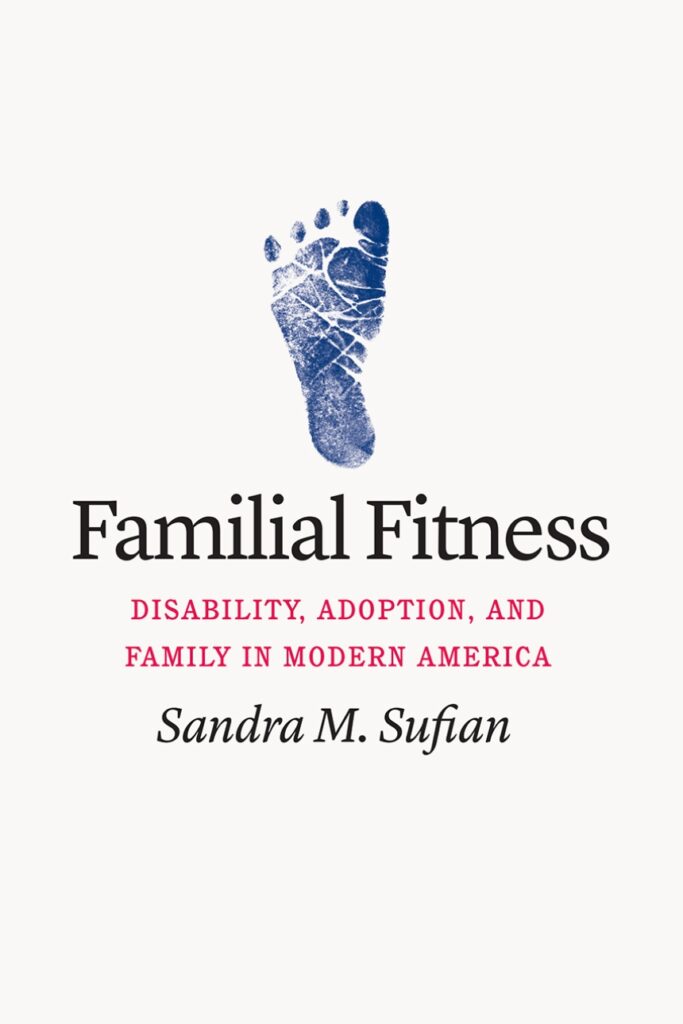
About our Guest
Sandy Sufian is a historian of medicine and disability at University of Illinois at Chicago. She holds joint appointments in the Department of Medical Education in the College of Medicine (Health Humanities) and in the Department of Disability and Human Development in the College of Applied Health Sciences. She is cofounder of the Cystic Fibrosis Reproductive and Sexual Health Collaborative and serves on the editorial board of Disability Studies Quarterly. Her most recent book is Familial Fitness: Disability, Adoption, and Family in Modern America, a history of the adoption of children with disabilities in the US during the twentieth century.
Sandy studies how biological and contextual factors interact to shape disability and illness experiences. She centers patients’ voices in her research to best understand the complexity of their lives and their health status. She is specifically interested in the areas of sexual and reproductive health, chronic illness, family and kinship, and best-practices for patient-centered research outcomes. She teaches graduate and medical students about patient-centered and contextual care, social aspects of illness and disability, and the social and structural determinants of health.
Episode 40 (March 2023): Disability History in Eastern Europe: A Roundtable Discussion
Guest host Isabelle Avakumovic-Pointon talks with Dr. Maria Bucur, Dr. Frances Bernstein, Dr. Maria Cristina Galmarini, and Dr. Magdalena Zdrodowska about the history of disability in Eastern Europe.
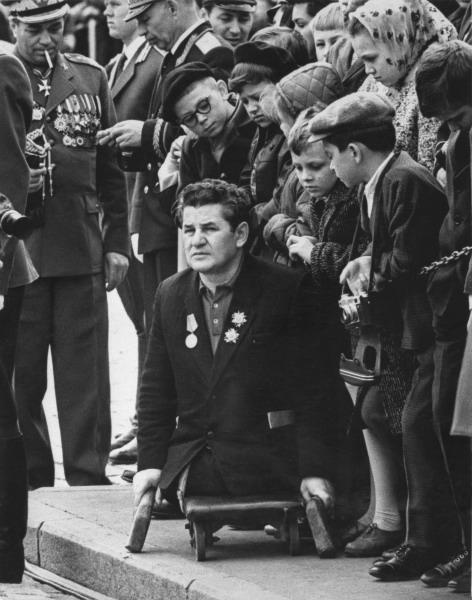
Download mp3 file here.
Download pdf transcript here.
Download show notes (compiled by Isabelle Avakumovic-Pointon) here.
About our Guests
Dr. Maria Bucur is Professor of Gender Studies and History at Indiana University in the USA. She has published extensively on gender, eugenic, medicine, and disability in interwar and state socialist Romania. Professor Bucur’s first book, Eugenics and Modernization in Interwar Romania, was published in 2002. Her current research project focuses on developing a platform for the study of the history of disabilities in Eastern Europe.
Dr. Frances Bernstein is Associate Professor of History at Drew University in New Jersey, USA. the mid-twentieth century. Her research focuses on disability, gender, sexuality, medicine, and the body in the Soviet context. Professor Bernstein’s first book, The Dictatorship of Sex: Lifestyle Advice for the Soviet Masses was published in 2007. Her current book project is titled City of Broken Men: Disability, Memory, and Masculinity at the End of World War Two.
Dr. Maria Cristina Galmarini is Associate Professor of History and Global Studies at William & Mary University in Virginia, USA. Her research focuses on social rights for marginalized groups, especially people with disabilities, in the early Soviet Union. Professor Galmarini’s first book, The Right to Be Helped: Entitlement, Deviance, and the Soviet Moral Order, was published in 2016 by Northern Illinois University Press. She has an upcoming book, titled Ambassadors of Social Progress A History of International Blind Activism in the Cold War, which will be published in Winter 2023.
Dr. Magdalena Zdrodowska is Assistant Professor at the Institute of Audiovisual Art at Jagiellonian University in Kraków, Poland. Her research focuses on the history of Deafness, disability, media, and technology. Professor Zdrodowska’s latest book is titled Telephones, cyborgs, and cinema: Entangled relations between deafness and technology and was published in Polish in 2021. Her current research project is titled The Deaf History of Cinema. Professor Zdrodowska is also an advocate for disability studies in Poland, and she is the Chair of the Disability Studies in Eastern Europe-Reconfigurations research platform.
Episode 39 (January 2023): Black Disability Politics
Guest host Emma Wathen interviews Sami Schalk about her new book, Black Disability Politics.
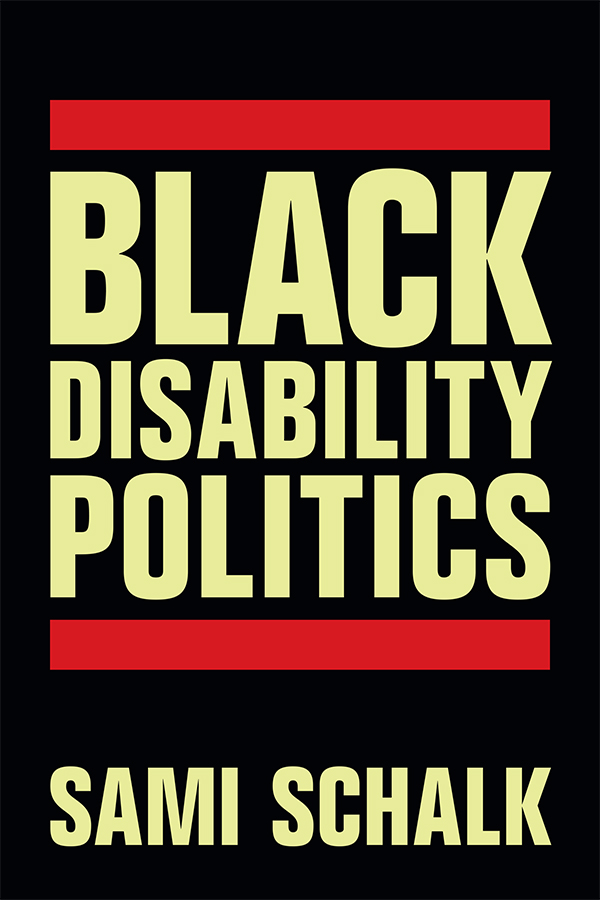
Download mp3 file here.
Download pdf transcript here.
About Our Guest
Dr. Sami Schalk (she/her) is an Associate Professor of Gender & Women’s Studies at University of Wisconsin-Madison. Dr. Schalk’s interdisciplinary research focuses broadly on disability, race, and gender in contemporary American literature and culture. She has published on literature, film, and material culture in a variety of peer-reviewed humanities journals. Dr. Schalk’s first book Bodyminds Reimagined: (Dis)ability, Race, and Gender in Black Women’s Speculative Fiction (Duke University Press 2018) argues that Black women writers of speculative fiction reimagine the possibilities and limits of bodyminds, changing the way we read and interpret categories like (dis)ability, race, gender and sexuality within the context of these non-realist texts. Her second book Black Disability Politics (Duke UP 2022) explores how Black cultural workers have engaged disability as a social and political issue differently than the mainstream, white-dominated disability rights movement. In doing so, Dr. Schalk argues that because Black disability politics take on different qualities, the work has been overlooked or misrecognized within disability studies and Black studies alike. Dr. Schalk also writes for mainstream outlets, serves as a board member for Freedom Inc., and once twerked with Lizzo. You can follow Dr. Schalk on Twitter.
Episode 38 (December 2022): Queer Crip Histories of White Rural American Life
Ryan Lee Cartwright discusses their new book, Peculiar Places: A Queer Crip History of White Rural Nonconformity.
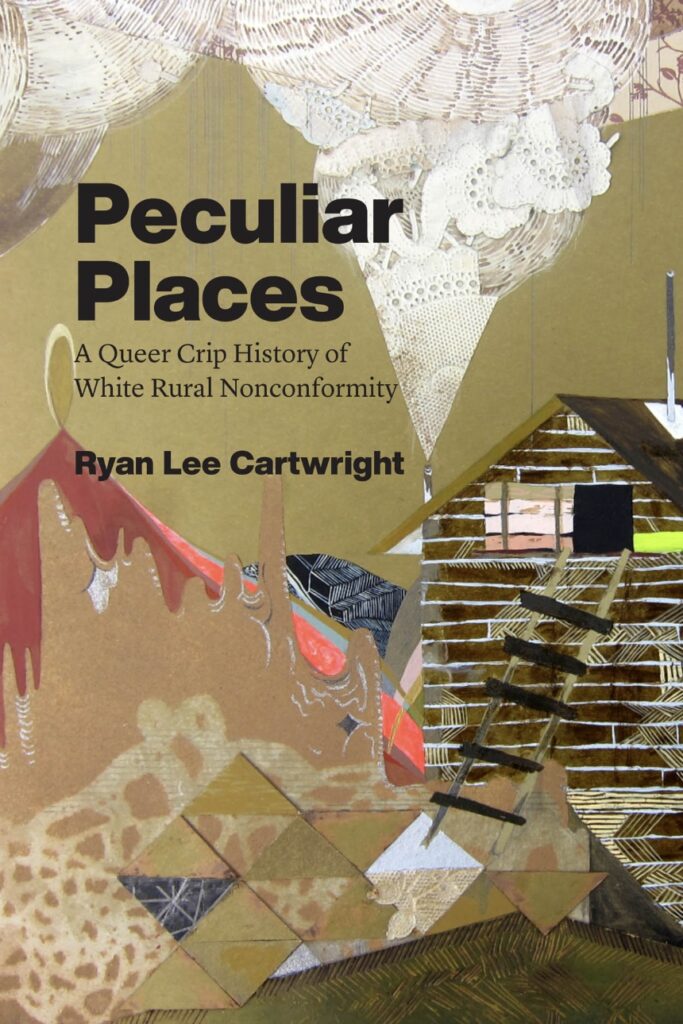
Download mp3 file here.
Download pdf transcript here.
About Our Guest
Ryan Lee Cartwright is an Associate Professor of Cultural Studies at UC Davis. Their research focuses on disability, gender, and sexuality on the social and spatial margins. Cartwright’s first book, Peculiar Places: A Queer Crip History of White Rural Nonconformity (University of Chicago Press, September 2021), maps racialized queer and disability histories of white social nonconformity across the rural US, from the 1910s to the 1990s. They are at work on a second book examining how, in the early-to-mid twentieth century US, chronic illness came to be understood as a gendered, racialized “social burden.” Cartwright teaches undergraduate and graduate courses on a wide range of topics, including disability studies, queer and trans history, the 1990s, research methodologies, social welfare, and landscapes and places. Cartwright is affiliated with the graduate groups in Cultural Studies and Performance Studies, as well as the designated emphasis in Feminist Theory and Research. They are also the coordinator of the Disability and Social In/Justice DHI research cluster.
Episode 37 (November 2022): Personal Assistance Services – Past, Present, and Future
Lisa Iezzoni discusses her new book, Making Their Days Happen: Paid Personal Assistance Services Supporting People with Disability Living in Their Homes and Communities
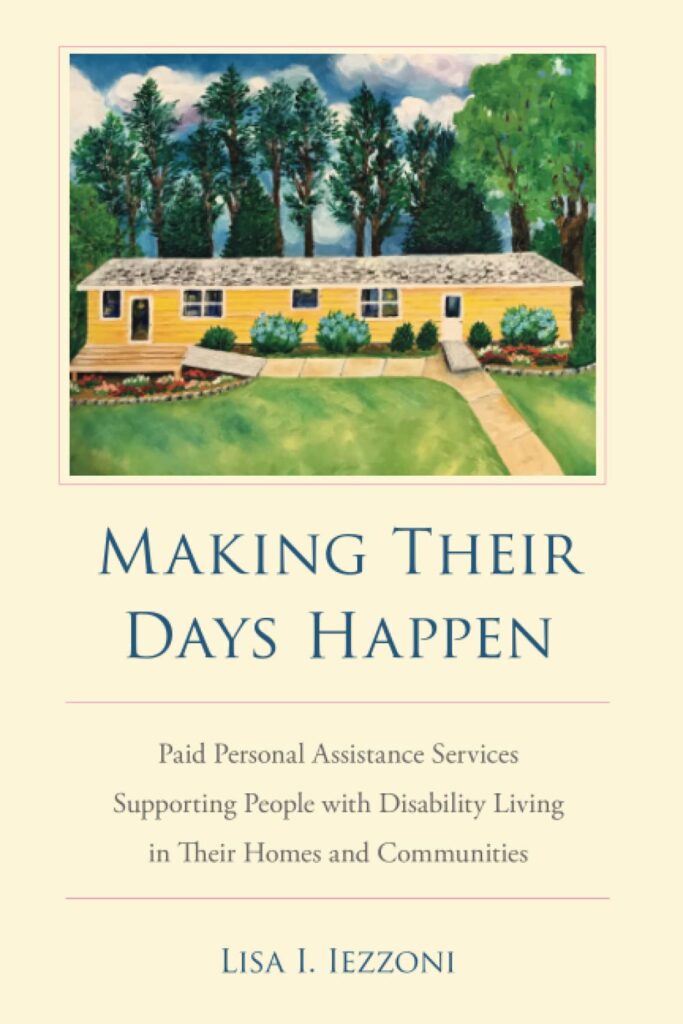
Download mp3 file here.
Download pdf transcript here.
About Our Guest
Lisa I. Iezzoni, MD, MSc is Professor of Medicine, Harvard Medical School, and based at the Health Policy Research Center, Mongan Institute, Massachusetts General Hospital. Dr. Iezzoni has conducted numerous studies examining the health care experiences of persons with disability. Her book Making Their Days Happen: Paid Personal Assistance Services Supporting People with Disability Living in Their Homes and Communities was just published. During the 2022-2023 academic year, she is the Sally Starling Seaver Fellow at the Harvard Radcliffe Institute. Dr. Iezzoni is a member of the National Academy of Medicine in the National Academies of Sciences, Engineering, and Medicine.
Episode 36 (August 2022): Disability and the History of Jewish Immigration to the United States
Hannah Zaves-Greene discusses her work on Jews and the “public charge provision” in US immigration history.
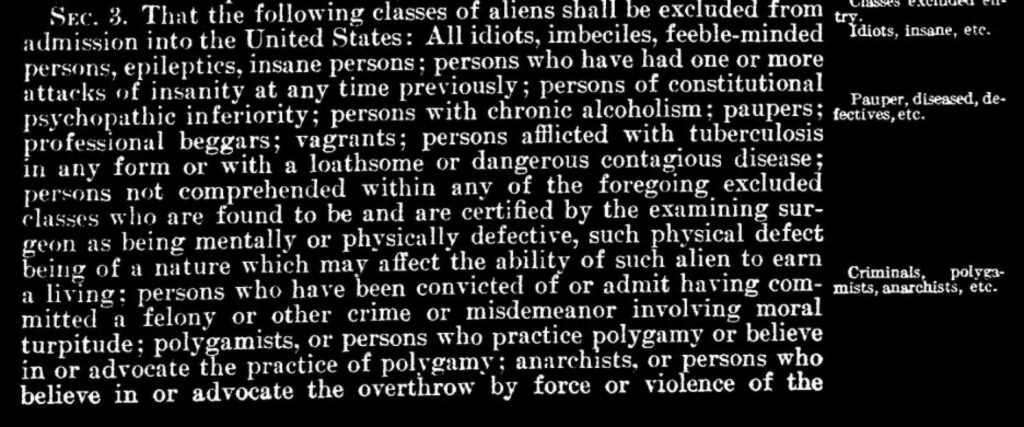
Download mp3 file here.
Download pdf transcript here.
About Our Guest
Hannah Zaves-Greene received her PhD in American Jewish history from New York University’s Department of Hebrew and Judaic Studies, where she focused on the intersection of immigration, gender and women’s history, legal and political history, and disability studies. Her dissertation, Able to Be American: American Jews and the Public Charge Provision in United States Immigration Policy, 1891-1934, explores how American Jews responded to discrimination against immigrants on the basis of health, disability, and gender, in federal law and its enforcement. She has taught multiple courses at Cooper Union and the New School for Social Research, presented her research at national and international conferences, and delivered guest lectures for both academic and activist groups. Currently, she is a visiting professor at Sarah Lawrence College. Her public history writing appears online at the Jewniverse, the Activist History Review, and the Jewish Women’s Archive, and her academic work has been published in American Jewish History and AJS Perspectives. Additionally, she has forthcoming work in the Journal of Transnational American Studies and in an edited volume on Jewish and Irish migration with NYU Press.
Episode 35 (June 2022): Hospitals, Archives, and Ethics in Southern US Disability History
Leah Richier discusses her work on mental hospitals in the US South.
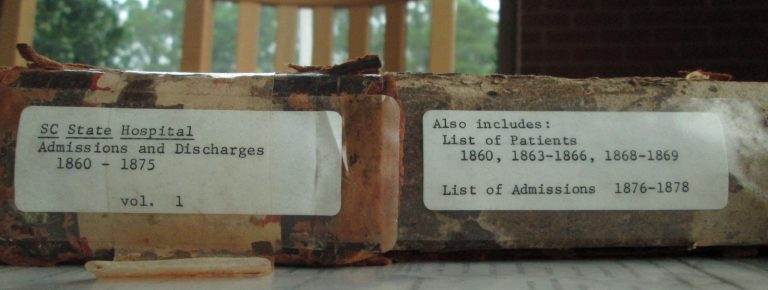
Download mp3 file here.
Download pdf transcript here.
About Our Guest
Leah Richier is an independent historian with a PhD from the University of Georgia and a BA from Agnes Scott College. She has taught history courses on a wide variety of subjects at the University of Georgia, Washington & Lee University, and the University of North Florida. For two years during the pandemic, she taught high school in Houston, Texas at Awty International. Her research focuses on the lives and deaths of disabled people during the nineteenth century, especially across the U.S. South. She also works constructing digital databases of murder-suicides and lunatic asylum patients in the same century. She can be reached at richierleah@gmail.com and found on Twitter @CallMeRichier.
Episode 34 (March 2022): The Life and Work of Lucy Gwin
Jim Odato discusses his new book on disability activist and Mouth editor Lucy Gwin.
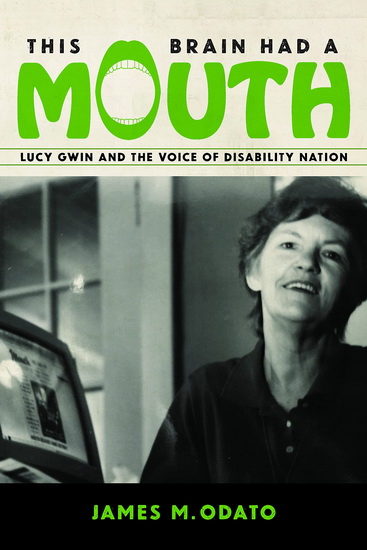
Download mp3 file here.
Download pdf transcript here.
About Our Guest
James Odato is a graduate of University of Massachusetts Amherst and has a master’s degree in English from University at Albany. He is currently the editor of the Adirondack Explorer. Prior to this role, he was an investigative reporter at the Albany Times Union for eighteen years, and he previously worked with the Buffalo News, Schenectady Gazette, the Gannett Co., and the Adirondack Daily Enterprise. He has also taught journalism as an adjunct professor at the University at Albany, The College of Saint Rose and the Sage Colleges. He can be reached at jim@adirondackexplorer.org.
Episode 33 (February 2022): A Eugenic Institution in Progressive America
Chelsea Chamberlain discusses her research on the history of Pennsylvania’s Elwyn School.

Source: Free Library of Pennsylvania (https://libwww.freelibrary.org/digital/item/44367)
Download mp3 file here.
Download pdf transcript here.
About Our Guest
Chelsea D. Chamberlain is a PhD Candidate at the University of Pennsylvania. She has a MA from the University of Montana and is on the advisory board of the Pennhurst Memorial and Preservation Alliance.
Episode 32 (December 2021): Remembering Native Kinship in and beyond Institutions
Susan Burch discusses her new book on the individuals, families, and communities who were affected by Canton Asylum.
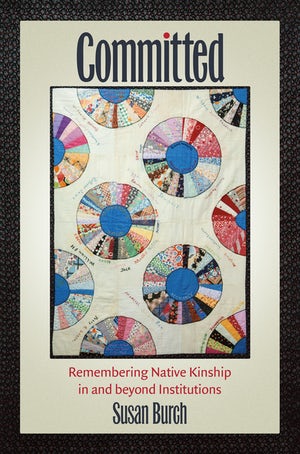
Download mp3 file here.
Download pdf transcript here.
About Our Guest
Susan Burch is a professor of American studies and a former director of the Center for the Comparative Study of Race and Ethnicity at Middlebury College. Her research and teaching interests focus on histories of deaf, disability, Mad, race, ethnicity, Indigeneity, and gender and sexuality. Material culture, oral history, and inclusive design play an important role in her courses. Burch is the author of Signs of Resistance: American Deaf Cultural History, 1900 to 1942 (2002) and a coauthor, with Hannah Joyner, of Unspeakable: The Story of Junius Wilson (2007). She has coedited anthologies including Women and Deafness: Double Visions (2006), Deaf and Disability Studies: Interdisciplinary Perspectives (2010), and Disability Histories (2014), and also served as editor-in-chief of The Encyclopedia of American Disability History (2009). Burch has received numerous grants and awards for her work, including an American Council of Learned Societies Fellowship, National Archives regional residency fellowship, National Endowment for the Humanities and Mellon Foundation grants, and a Fulbright Scholars award. Her latest book, which has recently received the National Women’s Studies Association Alison Piepmeier Book Prize, Committed: Native Families, Institutionalization, and Remembering (University of North Carolina Press, 2021) centers on peoples’ lived experiences inside and outside the Canton Asylum, a federal psychiatric institution created specifically to detain American Indians.
Episode 31 (October 2021):
Deaf Leisure and Culture in Northwest England
Martin Atherton discusses his career and research in Deaf Studies, deaf history, and beyond!
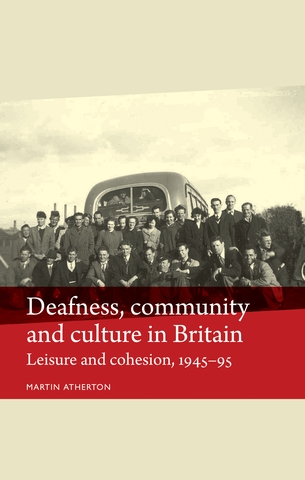
Download mp3 file here.
Download pdf transcript here.
About Our Guest
Martin Atherton retired from his post as Course Leader in British Sign Language and Deaf Studies in 2018 after 20 years as a member of staff at the University of Central Lancashire (UCLan) in the UK. He holds a Bachelor’s degree in British Sign Language and Deaf Studies from UCLan and a PhD in History from De Montfort University. He has written extensively on various aspects of deaf history in the UK.
Episode 30 (August 2021):
The Real Origins of Raised-Point Writing
Philippa Campsie discusses her new article on Charles Barbier, Louis Braille, and the story of raised-point writing.
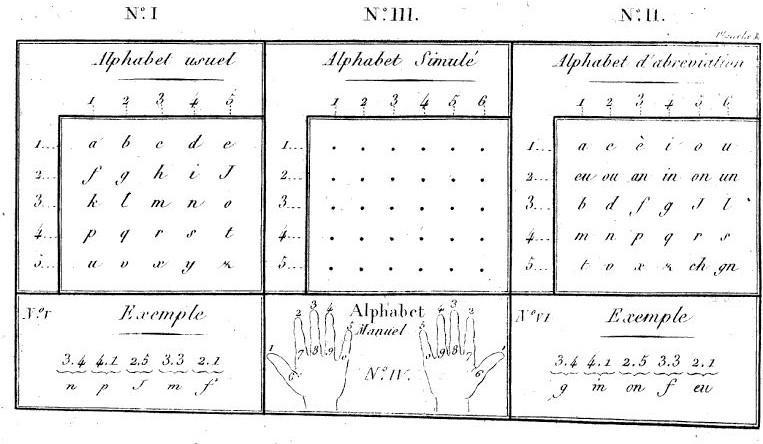
Download mp3 file here.
Download pdf transcript here.
About Our Guest
Philippa Campsie has a bachelor’s degree in biology and history from Dalhousie University, and a master’s degree in urban planning from the University of Toronto. She is an adjunct professor in the Department of Geography and Planning at the University of Toronto and a freelance writer and researcher who specializes in urban and municipal affairs. She and her husband pursue their longstanding interest in French life and history by writing a blog, Parisian Fields, now in its 11th year. Her interest in Charles Barbier began when she was given access to his papers in Paris, and she pursued her research at the Association Valentin Haüy, the Institut National des Jeunes Aveugles, and the Musée Louis Braille. Her article, “Charles Barbier: A Hidden Story” was published by Disability Studies Quarterly in June 2021.
Episode 29 (June 2021): HIV/AIDS, Masculinity, and Disability
Nicholas Hrynyk (University of Toronto) discusses his work on queer and disability history, including his recent article on HIV/AIDS, masculinity, disease, and disability.
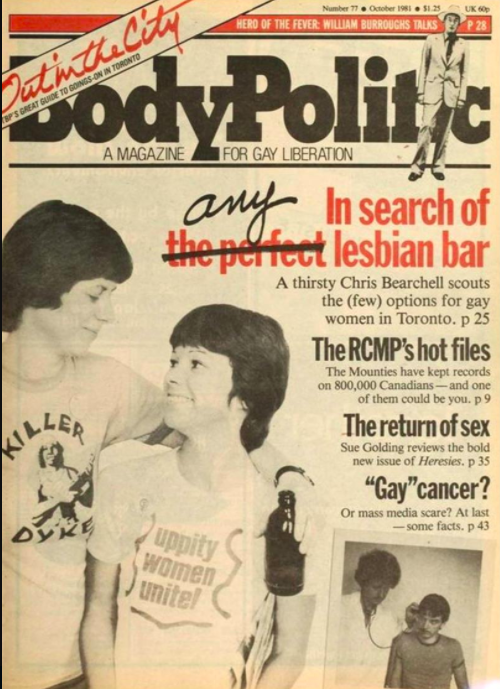
Download mp3 file here.
Download pdf transcript here.
About Our Guest
Nick Hrynyk is a Social Sciences and Humanities Research Council (SSHRC) Postdoctoral Fellow in the Department of Historical Studies at the University of Toronto in Toronto, Ontario, Canada. His research interests include queer history, disability studies (past and present), feminist and gender studies, critical race studies, and visual culture. Nick’s current project examines both the structures of discrimination such as social and physical barriers that many gay men and lesbians with disabilities faced, as well as how they used style to navigate their disabilities in relationship to Toronto’s larger queer community between 1969 and 1995. His forthcoming manuscript, Politic-ing the Body is under contract with University of Toronto Press and he is currently working on a second co-authored manuscript titled, Anticipated Violence and the Queer Subject. Finally, Nick serves on the Historical Advisory Committee for the Canadian Centre for Gender and Sexual Diversity and is an affiliated member with the Carleton Centre for Public History at Carleton University and the Windsor-Essex Rainbow Alliance. His website is https://nicholas-hrynyk.com/ and you can find him on LinkedIn at https://www.linkedin.com/in/nicholas-hrynyk-ph-d-923b285b/ .
Episode 28 (May 2021): The Life and Work of Socialist Radical E.T. Kingsley
Ravi Malhotra (University of Ottawa) discusses his new book, co-authored with Benjamin Isitt, about the life and work of American-Canadian socialist radical E.T. Kingsley.
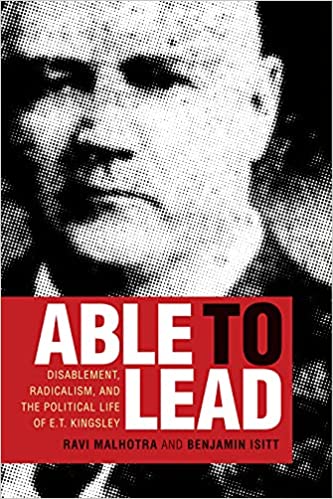
Download mp3 file here.
Download pdf transcript here.
About Our Guest
Ravi Malhotra is Full Professor at the University of Ottawa Faculty of Law, Common Law Section. He holds five degrees and is a graduate of Harvard Law School, the University of Toronto, the University of Ottawa and Carleton University. He has published several books including his anthologies, Disability Politics in a Global Economy: Essays in Honour of Marta Russell (Routledge) and (with Benjamin Isitt) edited Disabling Barriers: Social Movements, Disability History and the Law (University of British Columbia Press). Disabled since birth, you can follow him on Twitter @RaviMalh. Information about Able to Lead: Disablement, Radicalism, and the Political Life of E.T. Kingsley is available at https://www.ubcpress.ca/able-to-lead, as well as the accompanying website abletolead.ca. You can register for the June 15 book launch at https://www.eventbrite.ca/e/book-launch-by-ravi-malhotra-and-benjamin-isitt-tickets-147140131093.
Episode 27 (March 2021): Disability, Race, and Incarceration
Micah Khater (Yale University) discusses her dissertation on the history of Black women, escape, and Alabama prisons.
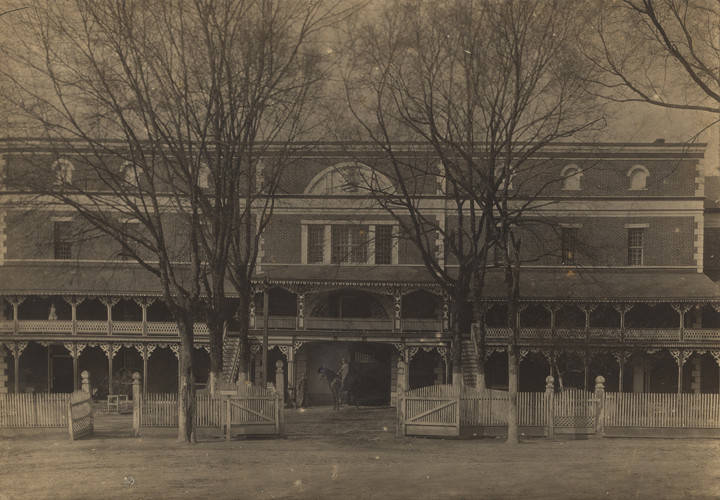
Download mp3 file here.
Download pdf transcript here.
About Our Guest
Micah Khater is an Arab American Ph.D. Candidate in the Departments of African American Studies and History at Yale University. She is currently completing her dissertation, “‘Unable to Find Any Trace of Her’: Black Women, Genealogies of Escape, and Alabama Prisons, 1920 – 1950,” which is a social and cultural history of Black women’s attempts to run away from police, jails, and prisons. In 2020 – 2021, she is a Center for Engaged Scholarship Fellow. In addition to scholarship, Khater’s poetry and prose has appeared in Sukoon and Taos International Journal of Poetry & Art. For more of her work–creative and academic–please visit her website.
Episode 26 (January 2021): Disability, Material Culture, and Public History
Nicole Belolan discusses her work on the material culture of gout in early America, as well as public history, pedagogy, and more!
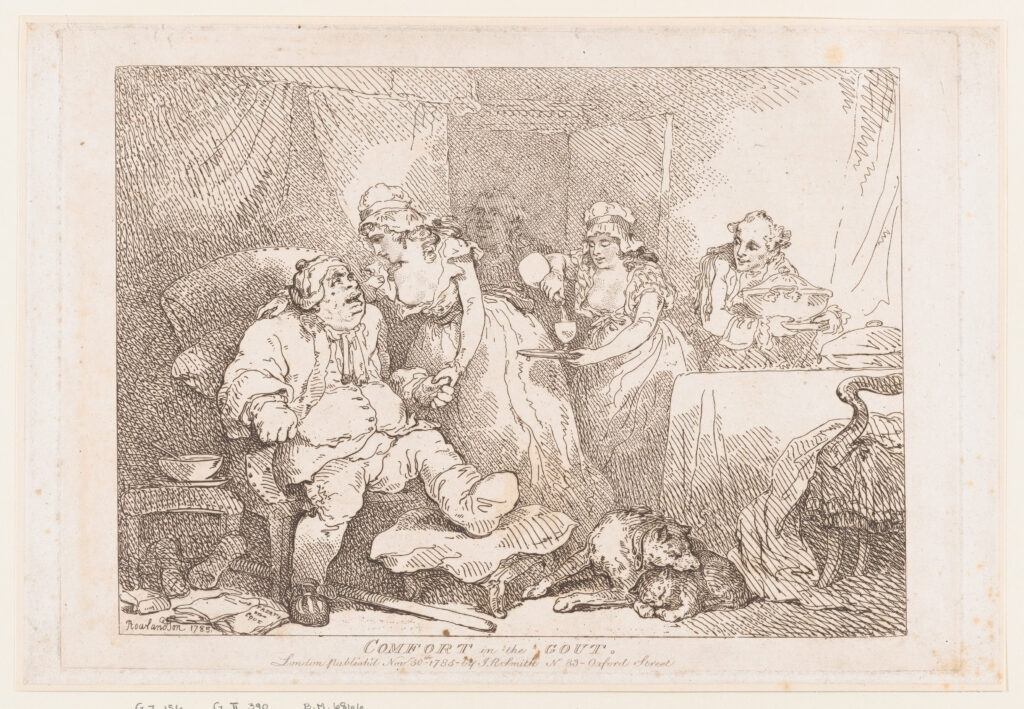
Download mp3 file here.
Download pdf transcript here.
About Our Guest
Nicole Belolan, PhD, is the Public Historian in Residence at the Mid-Atlantic Regional Center for the Humanities at Rutgers University-Camden. At Rutgers, she directs a continuing education program in historic preservation. As part of her appointment, she is also the Co-Editor of The Public Historian and the Digital Media Editor for the National Council on Public History. Nicole is a historian of the material culture of disability in early America. She regularly lectures and gives workshops on disability history and best practices for museums and historic sites, and she is the Secretary of the Disability History Association. Her most recent publication is “The Material Culture of Gout in Early America,” in Elizabeth Guffey and Bess Williamson, eds., Making Disability Modern: Design Histories (New York: Bloomsbury, 2020), 19-42.
Episode 25 (November 2020): Disability, Education, and Religious Liberty
Bruce Dierenfield and David Gerber discuss their new book, Disability Rights and Religious Liberty in Education: The Story of Zobrest v. Catalina Foothills School District.
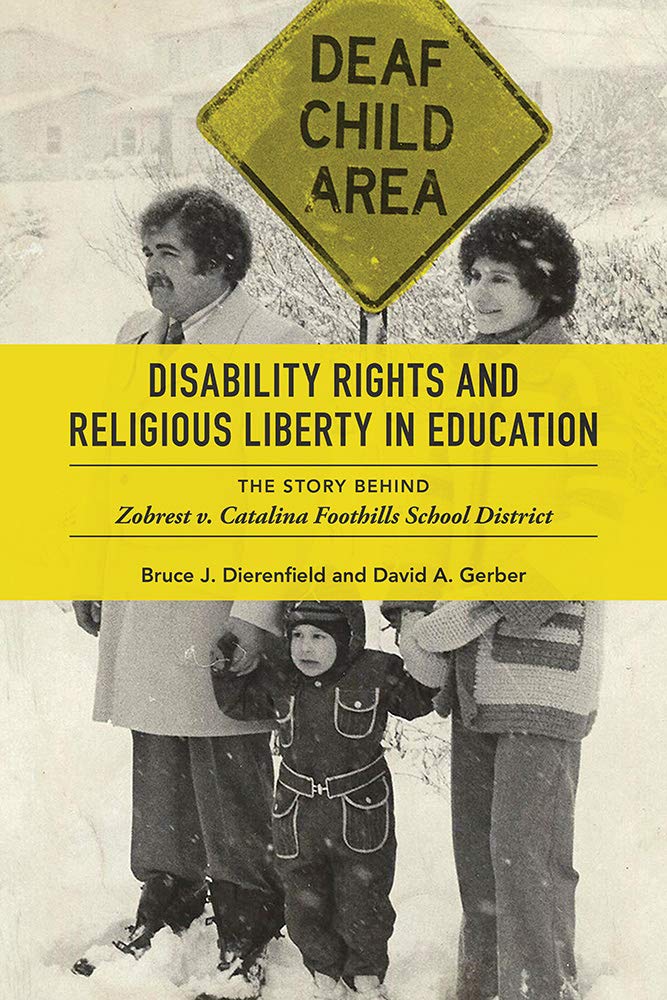
Download mp3 file here.
Download pdf transcript here.
About Our Guests
Bruce J. Dierenfield is a professor of history and director of the All-College Honors Program at Canisius College. He has authored numerous articles and books about race relations, civil rights, and religious liberty, including The Battle over School Prayer: How Engel v. Vitale Changed America (2007), which won the David J. Langum, Sr. Prize in American Legal History or Biography. David A. Gerber is a University at Buffalo Distinguished Professor of History Emeritus and director emeritus of the University at Buffalo Center for Disability Studies. He has published numerous essays and books about disability, immigration, and ethnicity. Professor Gerber was honored with the Annual Senior Scholar Award by the Society for Disability Studies in 2015, and he published an accompanying essay, “Disability Scholars as World Disrupters and Worldmakers,” in Disability Studies Quarterly in 2017.
Episode 24 (October 2020): Parent Memoirs and Guidebooks
Emer Lucey (University of Wisconsin-Madison) discusses her dissertation on memoirs and guidebooks by and for parents of children with disabilities.
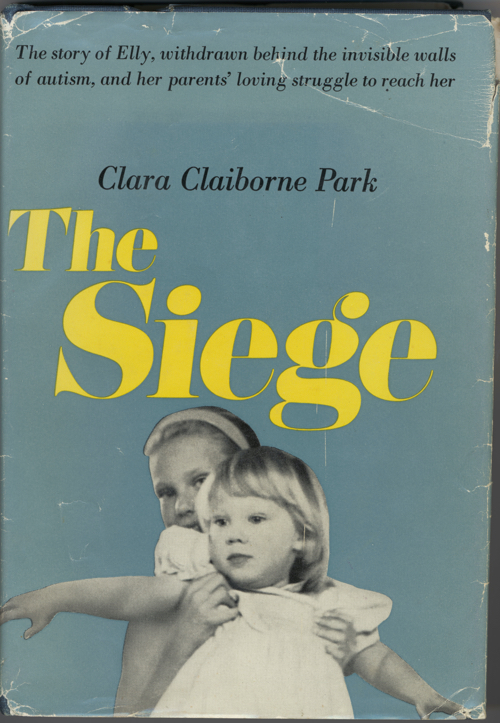
Download mp3 file here.
Download pdf transcript here.
About Our Guest
Emer Lucey is a PhD candidate in History of Science, Medicine, and Technology at the University of Wisconsin-Madison. Emer’s dissertation, “Constructing Childhood Disabilities,” examines the history of Down syndrome and autism as paradigmatic childhood developmental disabilities in the United States in the mid-to-late twentieth century. She can be reached via email at lucey@wisc.edu and found on twitter @emerlu .
Episode 23 (September 2020): Telephony and Hearing Loss in Interwar Britain
Coreen McGuire (Durham University) discusses her award-winning work on technology and the categorization of disability.
Download mp3 file here.
Download pdf transcript here.
Coreen references the following two images in her interview. The first image shows a mosaic of health-related posters. One poster, for example, is an advertisement for Chesterfield cigarettes featuring Santa Claus. Another poster shows a shirtless man flexing his muscles, and the text reads “Healthy Looks Can Hide Tuberculosis.” The second image zooms in on a particular poster. This poster has white text on a red background. The text repeats the words “I can’t breathe” twelve times. On the final line, the text fades away during the word “can’t.”
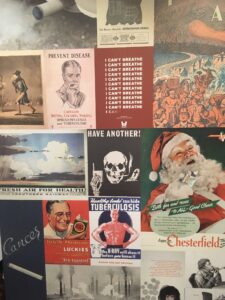
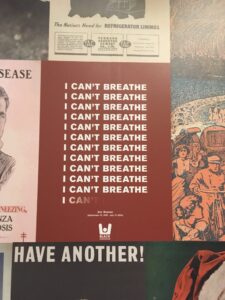
Coreen McGuire completed her PhD on the measurement of hearing loss in the British Telephone System at the University of Leeds in 2016. Following this, she took up a postdoctoral position at the University of Bristol, where she developed her research by exploring the measurement of respiratory disability as part of the Life of Breath Project. She has had six original articles published in peer-reviewed journals, contributed a spotlight piece for The Lancet, written two policy papers, and completed a monograph with Manchester University Press on the measurement of hearing loss and breathlessness. Its recent publication is a significant contribution to the history of medicine, science and technology studies, and disability history. One reviewer of the manuscript wrote: Measuring Difference, Numbering Normal ‘is deeply and imaginatively researched’ and ‘makes compelling connections between hearing and breathing, while emphasizing historical contingency in the interwar period, the biology and social context of the two, and the relationship between standardization, measurement, and disability’. Her first article in the British Journal of the History of Science was co-authored with Dr Jaipreet Virdi and discussed British scientist Dr Phyllis Kerridge’s contributions to science in Britain. Their collaboration has since developed into a full monograph project on Kerridge which has been put under contract with Johns Hopkins Press for publication in 2023. Coreen has won several notable awards, including the Scottish History Society Alasdair Ross Prize for archival research and the Disability History Association prize for outstanding article or book chapter. She will take up a three-year Lectureship in Twentieth-Century British history at Durham University in September 2020.
Episode 22 (August 2020): Disability in African American Literature and History
Delia Steverson (University of Florida) discusses Delores Phillips’s The Darkest Child and other intersections between disability and African American literature and history.
Download mp3 file here.
Download pdf transcript here.
Dr. Delia Steverson is an Assistant Professor of African American Literature at the University of Florida. Her book explores the nuances of how race and disability inform Black identity in 19th and 20th century African American literature. She has published in The Journal of American Culture and The South Carolina Review. Currently, she is developing a biography and a reader on the late Delores Phillips, poet and author of The Darkest Child.
Episode 21 (July 2020): Accessibility at Wichita State University
Carolyn Speer and Jay Price (Wichita State University) discuss accessibility in the classroom and beyond.
Download mp3 file here.
Download pdf transcript here.
Carolyn Speer is the Manager of Instructional Design and Access for Wichita State University. She works with a campus team of accessibility and accommodations professionals to help ensure the accessibility of academic and other university content for all university constituents. She holds CPACC certification and a Ph.D. in adult education as well as Master’s degrees in history and political science. Her professional and personal interests come together in the area of museum accessibility, and she has studied this topic extensively in the last few years. Most recently, she was involved in the Solve for X: Accessibility exhibit at the Ulrich Museum of Art on the Wichita State Campus.
Now serving as department chair, Jay M. Price directs the Local and Community History Program at Wichita State University. His publications include Temples for a Modern God: Religious Architecture in Postwar America; Gateways to the Southwest: The Story of Arizona State Parks, and several local photo histories from Arcadia Publishing. His recent projects include a study ethnic entrepreneurship in Wichita; a graphic novel that tells the story of the community through the eyes of a longhorn named Luke, and a larger study of the local Latino community.
Episode 20 (June 2020): Disability and Slavery in the Caribbean
Stefanie Hunt-Kennedy (University of New Brunswick) discusses her new book, Between Fitness and Death: Disability and Slavery in the Caribbean.
Download mp3 file here.
Download pdf transcript here.
Stefanie Hunt-Kennedy is a historian of the Caribbean and the Atlantic World, and Disability History at the University of New Brunswick. Her work has appeared in Slavery & Abolition, Social Identities, and several edited collections. Hunt-Kennedy is the author of Between Fitness and Death: Disability and Slavery in the Caribbean (University of Illinois Press, 2020) which explores the constitutive relationship between disability, anti-black racism, and slavery in the Caribbean from the fifteenth to the nineteenth century. She is the primary investigator of The Slave Law Project, an ongoing research project that aims to bring worldwide access to the British Atlantic slave laws from the earliest comprehensive codes of the seventeenth century to the laws that governed emancipation in the nineteenth century. Her second book project examines old age, disability, and capitalism in the world of Atlantic slavery.
Episode 19 (March 2020): Functional Fashions
Liz Jackson and Natalie Wright discuss their Functional Fashions exhibit and other projects.
Download mp3 file here.
Download pdf transcript here.
Liz Jackson is the founder of The Disabled List, a design organization that engages in disability as a creative practice. She is a curator at Critical Axis, a community driven project that collects and analyzes disability representation in media. Additionally, Liz co-founded Thisten, an audio-to-text transcription platform that makes voice content searchable. You can learn more about Liz at her personal website, The Girl with the Purple Cane.
Natalie Wright is a PhD student in Design History at the University of Wisconsin-Madison. Prior to joining UW-Madison, Wright was the Charles Hummel Curatorial Fellow at The Chipstone Foundation where she collaboratively curated a wide variety of exhibits including “Functional Fashions.” Wright completed her MA at the Winterthur Program in American Material Culture (2015), and received her BA from the University of Toronto, Trinity College (2013). Her doctoral research is funded by the Social Sciences and Humanities Research Council of Canada.
Episode 18 (January 2020): Disability and Design
Bess Williamson (School of the Art Institute of Chicago) discusses her new book on disability and design in US history.
Download mp3 file here.
Download pdf transcript here.
Dr. Bess Williamson is a historian of design and material culture, focusing primarily on works and influences of the last half-century. She is particularly interested in social and political concerns in design, including environmental, labor, justice, and rights issues as they shape and are shaped by spaces and things. Her book Accessible America: A History of Design and Disability (NYU Press, 2019) traces the history of design responses to disability rights from 1945 to recent times. You can find her on Twitter @besswww and on Instagram @accessible.design.
Episode 17 (November 2019): Special Education in Toronto
Jason Ellis (University of British Columbia) discusses his new book on the history of special education in Toronto and beyond.
Download mp3 file here.
Download pdf transcript here.
Jason Ellis, Associate Professor of Educational Studies at the University of British Columbia, is a historian of education. University of Toronto Press published his book, A Class by Themselves in 2019. He has also published on disability history in The Canadian Historical Review and (with Paul Axelrod) on special and inclusive educational policy in Teachers College Record. Currently he is writing a book about schooling, housing, opportunity, and inequality in a post-Second World War Canadian suburb.
Episode 16 (October 2019): Perkins School for the Blind
Jen Hale, archivist at the Perkins School for the Blind, discusses the school’s history and collections.
Download mp3 file here.
Download pdf transcript here.
Jen Hale is the Archivist for the Perkins School for the Blind. She has presented on the need for accessible photographs in digital collections and on legal and ethical considerations for digitization selection. Jen is a coauthor of Read by Touch: Stewarding the Reading and Writing Collection at the Perkins School for the Blind (Preservation, Digital Technology & Culture, April 2016). More information about the Perkins archives is available at https://www.perkins.org/
Episode 15 (September 2019): California’s Eugenic Sterilization Program
Natalie Lira (University of Illinois) discusses her work on eugenic sterilization, race, and reproductive justice in California.
Download mp3 file here.
Download pdf transcript here.
Natalie Lira is an interdisciplinary scholar who examines the politics of reproduction and the ways that U.S. histories of racial and reproductive justice intersect. She is currently an Assistant Professor in the Department of Latina/Latino Studies at the University of Illinois at Urbana-Champaign and an affiliate in the Department of Gender and Women’s Studies. Natalie is currently writing a book on Mexican-origin women and men’s experiences of sterilization and confinement in California state institutions during the early to mid-twentieth century. You can find her work in Aztlán: A Journal of Chicano Studies and the American Journal of Public Health.
More information about the collaborative Sterilization and Social Justice Lab project mentioned in the interview is available at https://sites.google.com/umich.edu/ssj-mini-conference/sterilization-social-justice-lab.
Episode 14 (August 2019): Disability, Spirituality, and Alternative Medicine
Michael Davis (Hampton University) discusses his research on the Wright Brothers and Edgar Cayce.
Download mp3 file here.
Download pdf transcript here.
Dr. Mike Davis is Assistant Professor of History at Hampton University, an HBCU in Hampton, Virginia. A graduate of the University of Cincinnati, Dr. Davis previously taught at Laredo Community College in Laredo, Texas and Northwest Florida State College in Niceville, Florida. His work deals with the intersection of religion, politics, and culture in 19th and 20th century America. His current projects include the first scholarly biography of Edgar Cayce as well as a spiritual history of Wilbur and Orville Wright. He can be followed on Twitter at @madavis71415872 or reached via email at michael.davis@hamptonu.edu.
Episode 13 (June 2019): Disability, Childhood, and an African American Prodigy
Camille Owens (Yale University) tells the story of nineteenth-century child performer Oscar Moore.
Download mp3 here.
Download pdf transcript here
Camille S. Owens is a PhD Candidate in African American Studies and American Studies at Yale University. Her dissertation, “Blackness and the Human Child: Race, Prodigy, and the Logic of American Childhood,” traces a genealogy of 19th- and 20th-century black prodigy performances to explore intersections of race and child-development as measures of the Human.
Episode 12 (May 2019): Disability History in Scotland
Iain Hutchison (University of Glasgow) discusses his work on disability history in Scotland.
Download mp3 here.
Download pdf transcript here.
Iain Hutchison completed his undergraduate degree as a mature student in 2000, at the University of Strathclyde, where he remained until completion of his PhD in 2004. He is currently a research affiliate at the University of Glasgow. He is a board member of the Disability History Association, and reviews editor for H-Disability.
More information about the Seeing Our History podcasts, and particularly the theme song, can be found at http://insightradio.co.uk/seeingourhistory-themetune.html#.XPmSXGRKgTI.
[Music: Easygoing by Nicolai Heidlas Music | https://www.hooksounds.com | Creative Commons — Attribution 4.0 International]
Episode 11 (April 2019): Deafness, Quackery, and More!
Jaipreet Virdi (University of Delaware) discusses her new book, the power of social media, teaching disability history, and more.
Audio is not available for this episode. Please download the pdf transcript here.
Jaipreet Virdi is an Assistant Professor of history of medicine, technology, and disability at the University of Delaware. She received a B.A. from York University, a M.A. and PhD from the Institute for the History and Philosophy of Science and Technology at the University of Toronto. She is currently completing her first book, Hearing Happiness: Fakes, Frauds, and Fads in Deafness Cures, to be published by the University of Chicago Press. She is also working on three other projects: Objects of Disability, an online resource database of historical artifacts used by, and/or crafted by disabled people; a second book project, From Prevention to Conservation: American Research on Hearing Impairment, 1910-1960, which focuses on collaborative programs that constructed hearing loss as a public health issue; and a co-authored project with Dr. Coreen McGuire on scientific research on deafness, nutrition deficiencies, and breathlessness, titled Instrumental Injustices: Women Scientists and the Politics of Disability in Interwar Britain. She is also Contributing Editor of the journal Pharmacy in History and Co-Editor of Communiqué, the newsletter of the Canadian Society for the History and Philosophy of Science. She runs a history of medicine blog, From the Hands of Quacks and is on Twitter as @jaivirdi .
Episode 10 (March 2019): Psychiatric Jim Crow
Ayah Nuriddin (Johns Hopkins University) discusses the history of Maryland’s Crownsville State Hospital.
Download mp3 here.
Download pdf transcript here.
Ayah Nuriddin is a PhD candidate in the Department of the History of Medicine, and Graduate Fellow in the Center for Medical Humanities and Social Medicine at Johns Hopkins University. For this academic year (2018-19), she is a Dissertation Fellow at the Consortium for the History of Science, Technology, and Medicine (CHSTM). She holds a Masters in History and Masters of Library Science (MLS) from the University of Maryland, College Park. Her dissertation, entitled “Liberation Eugenics: African Americans and the Science of Black Freedom Struggles, 1890-1970,” analyzes African American engagement with eugenics, hereditarian thought, and racial science as part of a broader strategy of racial improvement and black liberation. She can be reached via email at anuridd1@jhmi.edu or on Twitter @AyahNerd.
[Music: Easygoing by Nicolai Heidlas Music | https://www.hooksounds.com | Creative Commons — Attribution 4.0 International]
Episode 9 (February 2019): The Museum of the American Printing House for the Blind
Director Michael Hudson discusses the history of APH, the museum’s exhibits and collections, and accessible museum practice.
Download mp3 file here.
Download pdf transcript here.
Mike Hudson has been the director of the Museum of the American Printing House for the Blind since 2005. A native of Lexington, KY, he obtained his M.A. in the History of Technology from the University of Delaware in 1987. He previously headed the collections program at the Kentucky Historical Society and has been working in the museum field for more than thirty years.
[Music: Easygoing by Nicolai Heidlas Music | https://www.hooksounds.com | Creative Commons — Attribution 4.0 International]
Episode 8 (January 2019): The Best Years of Our Lives
Professor David Gerber (University of Buffalo) discusses this classic 1946 film about servicemen readjusting to civilian life after World War II.
Download mp3 file here.
Download pdf transcript here.
Dr. David Gerber is a Distinguished Professor Emeritus in the Department of History and Emeritus Director of the Center for Disability Studies at the University of Buffalo. He has authored and edited numerous books, including Disabled Veterans in History (2000, revised and expanded 2012), and has published numerous essays about disability, immigration, and ethnicity. Among his many accolades, Professor Gerber was honored with the Annual Senior Scholar Award by the Society for Disability Studies in 2015, and he published an accompanying essay, “Disability Scholars as World Disrupters and Worldmakers,” in Disability Studies Quarterly in 2017.
[Music: Easygoing by Nicolai Heidlas Music | https://www.hooksounds.com | Creative Commons — Attribution 4.0 International]
Episode 7 (December 2018): Martha Ann Honeywell: Art, Performance, and Disability in the Early Republic
Dr. Laurel Daen discusses her award-winning article.
Download mp3 file here.
Download pdf transcript here.
Dr. Laurel Daen is a National Endowment for the Humanities postdoctoral fellow at the Omohundro Institute of Early American History and Culture. Laurel’s current research focuses on disability in early North America (to 1840). She is writing a book about disability, authority, and state-building in the early national period. She has also published articles and book chapters on “invalid” pensions for American Revolutionary War veterans, inventions for disability in early nineteenth-century Britain, and the early nineteenth-century American artist and performer Martha Ann Honeywell. This latter article won the Disability History Association’s 2018 Outstanding Article or Book Chapter Award and is the subject of this podcast.
[Music: Easygoing by Nicolai Heidlas Music | https://www.hooksounds.com | Creative Commons — Attribution 4.0 International]
Episode 6 (November 2018): Canadian Disability History
Dr. Nancy Hansen (University of Manitoba) discusses disability history and activism in Canada.
Download mp3 file here.
Download pdf transcript here.
Dr. Nancy Hansen is an Associate Professor and Director of the Interdisciplinary Master’s Program in Disability Studies at the University of Manitoba. Nancy obtained a PhD (Human Geography) from the University of Glasgow and her research interests in disability studies include disability in spaces of culture education, literacy, social policy, employment, healthcare access, and experiences of disabled and LGBTQ communities in post-conflict areas. Nancy is a former member of the CAUT Working Group Academics with Disabilities and Equity Committee, and former President of the Canadian Disability Studies Association. Nancy received an Einstein research fellowship examining Disability Studies and the Legacy of Nazi Eugenics and the ICUF Sprott Asset Management Scholarship examining disability history. Nancy has written numerous book chapters and contributed to various international academic journals. She is co-editor of The Routledge History of Disability with Roy Hanes and Ivan Brown (2017) and Untold Stories: A Canadian Disability History Reader with Roy Hanes and Diane Driedger (2018). She can be reached on Twitter @DrNancyHansen.
Episode 5 (October 2018): Disability in Medieval Europe
Recent MA graduate Greg Carrier (University of Alberta) discusses his work on deafness and disability in medieval Europe.
Audio is not available for this episode. Please download the pdf transcript here.
Greg Carrier is a deaf-blind graduate student who is interested in how medieval intellectuals approached disability, especially deafness. He is particularly interested in examining how medieval thinkers approached disability with respect to medieval religion and theology. He can be contacted via email at gcarrier@ualberta.net.
Episode 4 (September 2018): Global Histories of Disability
PhD students Chao Wang (University of Chicago), Katherrine Healey (Yale University), and Elizabeth McFayden (University of Illinois at Chicago) discuss their experiences attending “Global Histories of Disability,” a National Endowment for the Humanities Summer Institute.
Audio is not available for this episode. Please download the pdf transcript here.
Episode 3 (May 2018): Disabled Homemakers in Postwar America
Dr. Laura Micheletti Puaca discusses her chapter, “The Largest Occupational Group of All the Disabled: Homemakers with Disabilities and Vocational Rehabilitation in Postwar America,” which was published in the collection Disabling Domesticity (2017) and won one of the Disability History Association’s publication awards.
Download mp3 file here.
Download pdf transcript here.
Dr. Laura Micheletti Puaca is Associate Professor of History and Director of the Minor Program in Women’s and Gender Studies at Christopher Newport University. Her research interests include U.S. women’s history, disability studies, and the history of science and technology. Laura’s recent book, Searching for Scientific Womanpower: Technocratic Feminism and the Politics of National Security, 1940-1980 (University of North Carolina Press, 2014), won the 2017 History of Science Society’s Margaret W. Rossiter Prize for best book on the history of women in science. She also won the 2017 Disability History Association’s Publication Award for Best Article/Book Chapter for her essay, “The Largest Occupational Group of All the Disabled: Homemakers with Disabilities and Vocational Rehabilitation in Postwar America” that appeared in Michael Rembis, ed. Disabling Domesticity (Palgrave Macmillan, 2016). Building on this research, Laura is currently working on a new book-length project examining disability and domesticity in the post-World War II United States.
Episode 2 (March 2018): Blindness in French Fiction
Dr. Hannah Thompson discusses her new book, Reviewing Blindness in French Fiction, 1789-2013.
Download mp3 file here.
Download pdf transcript here.
Dr Hannah Thompson (Hannah.thompson@rhul.ac.uk) is a Reader in French at Royal Holloway, University of London. She has published widely on nineteenth-century French prose fiction, with particular reference to gender, sexuality and the non-normative body (Naturalism Redressed: Identity and Clothing in the Novels of Emile Zola (Oxford: Legenda, 2004); Taboo: Corporeal Secrets in Nineteenth-Century France (Oxford: Legenda, 2013)). Her third monograph, Reviewing Blindness in French Fiction (Palgrave, 2017), marks the beginning of a new research interest in the intersections between Critical Disability Studies and French Studies. Hannah is currently working on creative audio description and the notion of ‘blindness gain’. She is the author of the popular blog Blind Spot (https://hannah-thompson.
Episode 1 (January 2018): Disability and The Waltons
Haley Gienow-McConnell discusses her research on representations of disability in the hit 1970s TV show The Waltons.
Download mp3 file here.
Download pdf transcript here.
Haley Gienow-McConnell is a PhD candidate at York University in Toronto, Ontario. Her research interests include cultural histories of disability, deaf histories, and histories of women’s health and disability. She is a fluent ASL-user, and lives with her deaf husband and their daughter in Thorold, Ontario. Haley also recently published a deaf/disability positive children’s book entitled “A Sense of Love.” She can be reached at haleygm@yorku.ca or on Twitter at @HaleyAnnGM.